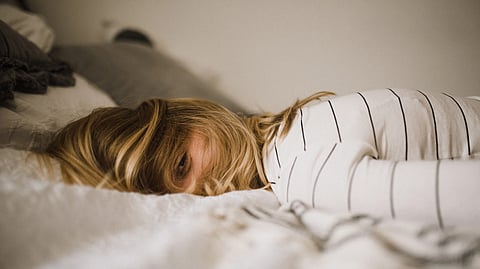In a recent interview with Dr. Sourav Sarkar, Medbound Times got to know about Cognitive behavioral therapy for people who can't sleep properly at night.
Dr. Sourav Sarkar is a certified Sleep Specialist, practicing in Uttar Pradesh, India.
Cognitive behavioral therapy for Insomnia (CBT-I) is a form of therapy that aims to change the unhealthy and negative thought patterns and behaviors that can cause sleep problems. It is a brief, focused, and structured therapy that typically consists of 6-12 sessions.
CBT-I is based on the principles of cognitive-behavioral therapy (CBT) and focuses on teaching individuals how to manage their thinking patterns and behaviors that contribute to insomnia. The therapy involves several techniques, including sleep restriction, stimulus control, relaxation training, and cognitive therapy.
Sleep restriction involves limiting the time spent in bed to the amount of time spent sleeping. This helps to re-establish a healthy sleep pattern by reducing the amount of time spent awake in bed and increasing the quality of sleep. Stimulus control involves creating a positive association between the bed and sleep. This involves avoiding activities that associate the bed with activities other than sleep.
Relaxation training teaches individuals how to reduce the physiological response to stress by relaxing the body and mind. Cognitive therapy focuses on changing negative and irrational beliefs and expectations about sleep that can lead to insomnia.
CBT-I has been found to be highly effective in managing sleep disorders, and it is recommended as a first-line treatment for insomnia. According to Dr. Sourav Sarkar, studies have shown that it can significantly improve the quality and quantity of sleep and reduce the use of sleep medication.


